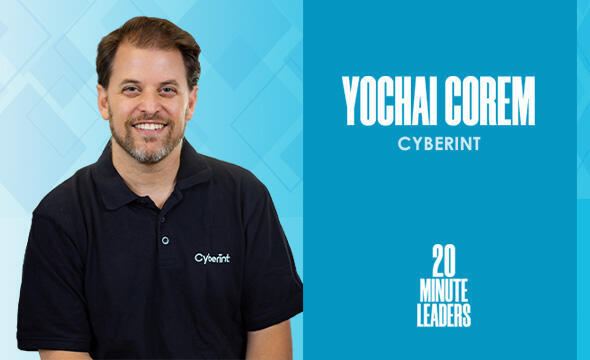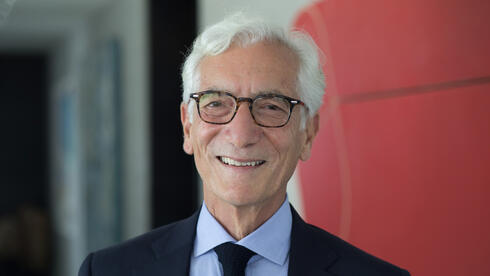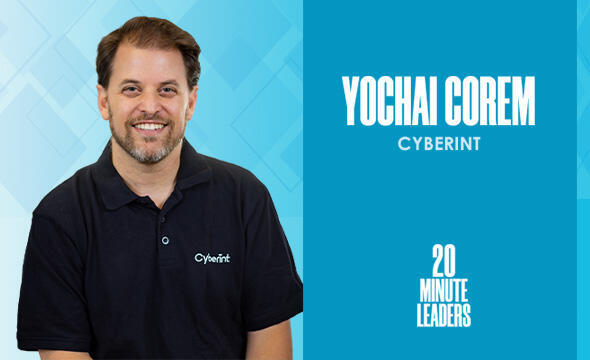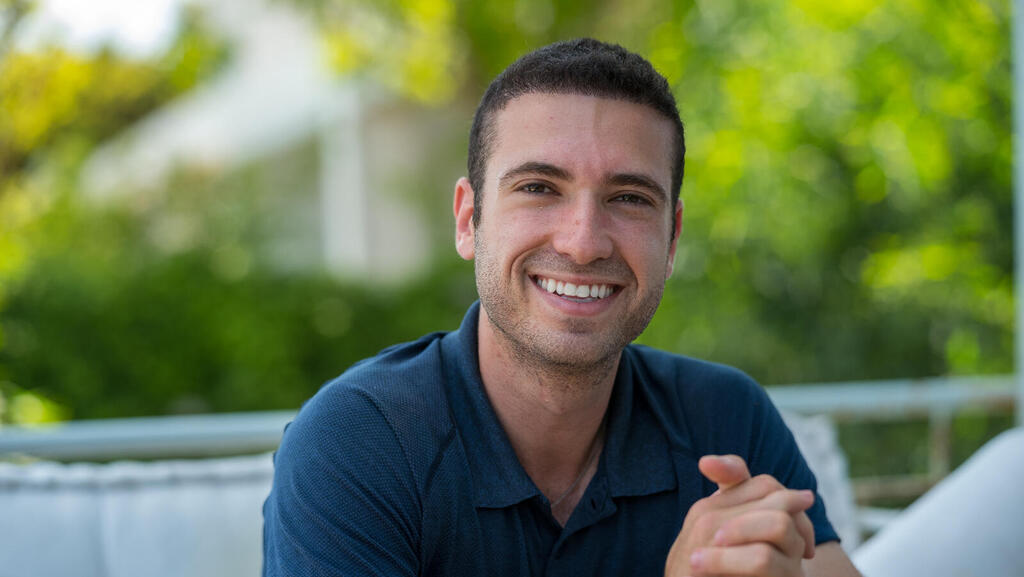
20-Minute Leaders
“Cybersecurity is becoming a business enabler rather than expenditure.”
Yochai Corem was not actively looking for a CEO position, but when he had the opportunity to join Cyberint as the CEO, he took it.
Yochai Corem was not actively looking for a CEO position, but when he had the opportunity to join Cyberint as the CEO, he took it. He shares that one would have to give a lot of thought to passing up that kind of experience. Cyberint uses intelligence to try to find hackers before they can do maximum damage to organizations. Corem explains that cybersecurity is transitioning into something that enables business rather than a cost companies just want to keep down. He says customers have high expectations for the cybersecurity of any company in today’s world. Corem also shares how important it is to have various interests and paths in life. His first degree was in history and geography, and his first venture came from a website he built to share hiking information within his military unit. He says these varied interests have helped him to be a better manager.
Your first degree was from The Open University, studying history and geography. Connect the dots for me from history and geography major to cyber threat entrepreneur.
I like hiking and traveling. I was also a tour guide. Inside the military service there is a unique competition on knowing your heritage and geography. One exam after the other, I came to win this championship for all of the Israeli Defense Forces. I said, "I will never be an historian, but I like history, so let's take the time while I am in the military to take some geography, historical, and archeological courses.” It was really nice. I recommend for everyone to have parallel paths in your life, not only your main career. It helped me to connect and give ideas that are making me a better person, a better manager, a better professional.
When I won this championship I thought about how I can help others with my knowledge. I decided to set up a small website within 8200 and share every weekend a recommendation for the next hike. I did it week after week. When I finished my military service, people said, "You must continue with that." So I set up Tiuli. Tiuli is, I think, the number one website in Israel for leisure and hiking. While I was studying and working, I also continued with this startup.
As any entrepreneur, the goal is to identify a problem and to bring the solution with a continuous evaluation process. I found that people do not know where to go on the weekends. I saw there was no good information on the internet, and I decided to write those recommendations on my website. Suddenly, this website had tens of thousands of people going every day to look for ideas. I added people who can publish and advertise.
I wanted to try to connect it to business, and I thought, "If I have so many people visiting this website, maybe they can also buy hiking equipment." Today, this is how we shop, right? More than 10 years ago, it was not the same. I wanted to partner with someone. I met Lametayel, which has big stores, and after a few years of working together, they decided to buy Tiuli.
Through this passion of history and geography, I wanted to give something to society, and I volunteered a lot. But it also taught me business. Still today, Tiuli is one of the biggest websites in Israel that you can go and enjoy. I started this 19 years ago.
It's an amazing feat creating a product that 19 years later is still used, especially after an M&A. What's the magic there?
Yuval Limon, the founder and CEO of Lametayel, is a unique person with very similar DNA to myself. I didn't sell Tiuli to make a bunch of money and go home. I really thought it would be a good home. For five more years, I participated until I felt that there were the right people inside. The DNA of Lametayel gave the extra color that was required for Tiuli.
Also the product was really good. People go to Nahal Kziv or to Jerusalem today, and they can follow my recommendations of where to hike.
Today you are with Cyberint in cybersecurity. What got you into this?
In parallel to being in Tiuli, I decided to be in high tech. I did work with different companies in product management and engineering, then sales and marketing. It gave me 360 degrees of how an organization works. One day I got a call from a headhunter that said, "We think it's the right time for you to become a CEO." I met the board of directors of Cyberint, which was looking for a CEO. I thought that my background in intelligence and cyber is relevant, and I got the position.
Deciding to join as a CEO of an existing company, what was the decision-making process like for you?
I worked in a really good company called CYE. I was happy and I really appreciate the CEO and the rest of the team. But I felt that I have the needed experience and capabilities to make the shots myself. At the end of the day, as a CEO, you need to make the calls. With 20 years of experience covering different areas, I felt this is the next natural step for me. When you get this opportunity, you need to think three times before you pass away such an opportunity.
What is the world that we are living in in terms of digital risk protection, threat intelligence?
People, and definitely Covid, did a big push in working from home and using cloud environments. Hackers also see that, and it has become a very lucrative business. There are people who are looking for organizations to hack and they sell this information. Others develop malware as a service in SaaS platforms. Others know how to execute attacks.
There are millions of computers being infected every year with information extracted. I wanted to be in an organization that helps to make the world a better place to do digital business. When I had the chance to join a company like that, I felt it's really fitting. When I wake up every day, I really feel, on a daily basis, that we stop attacks.
How do you create a culture where people across the culture feel and resonate with that?
We have a new employee, I think he's less than four weeks in the company, and I asked him in the kitchen yesterday, "How is it going?" And he was glowing. He said, "Yesterday, I found a small piece of trail. I found an attack that is actually currently growing. I was able to identify an alert on time and they could remediate this problem." This happens every day.
If you are looking into the future, where are we headed in terms of these threats and the potential solutions?
How do you stop those hackers? We took the approach of actually trying to identify the hacker using intelligence capabilities before they go to the maximum steps of their actions. We do that by scanning the entire internet and looking from the outside whether there are any windows where the hacker can go in. We are also looking at the open, deep, and dark web for commerce and chatter between threat actors to see their intention and information they are trying to sell. We are also looking for mistakes people make, uploading source code with credentials into code repositories and other places. Our goal is to identify that ahead of time.
I'm optimistic by nature, which is very important for any CEO. But also, we need to be realistic and to plan for situations where not everything will be fine. But we are able to identify attacks every day, which means our customers see the value.
Our vision today, we call it "impactful intelligence,” making an impact on organization. We want to provide them with the information of the problem and be able to fix it quickly. I think the customers of any company demand cybersecurity. I'm happy to be part of this transition where cybersecurity becomes a business enabler rather than expenditure.
If you had to look at your day-to-day, what are those moments of delight for you?
I feel I have many of those every day. An employee that says, "I'm happy I'm Cyberint." Or a customer that tells me, "Thank you. I sleep better at night when I have you." Also, I'm a pilot today. I'm also in the air with my son, and it's also something delightful.
Michael Matias, Forbes 30 Under 30, is a Venture Fellow at Innovation Endeavors as well as investment Venture Partner at Secret Chord and J-Ventures. He studies Artificial Intelligence and Human-Computer Interaction at Stanford University, and was an engineer at Hippo Insurance. Matias previously served as an officer in the 8200 unit. 20MinuteLeaders is a tech entrepreneurship interview series featuring one-on-one interviews with fascinating founders, innovators and thought leaders sharing their journeys and experiences.
Contributing editors: Michael Matias, Megan Ryan














